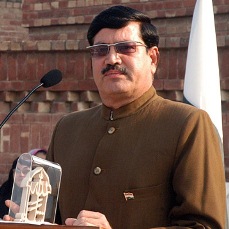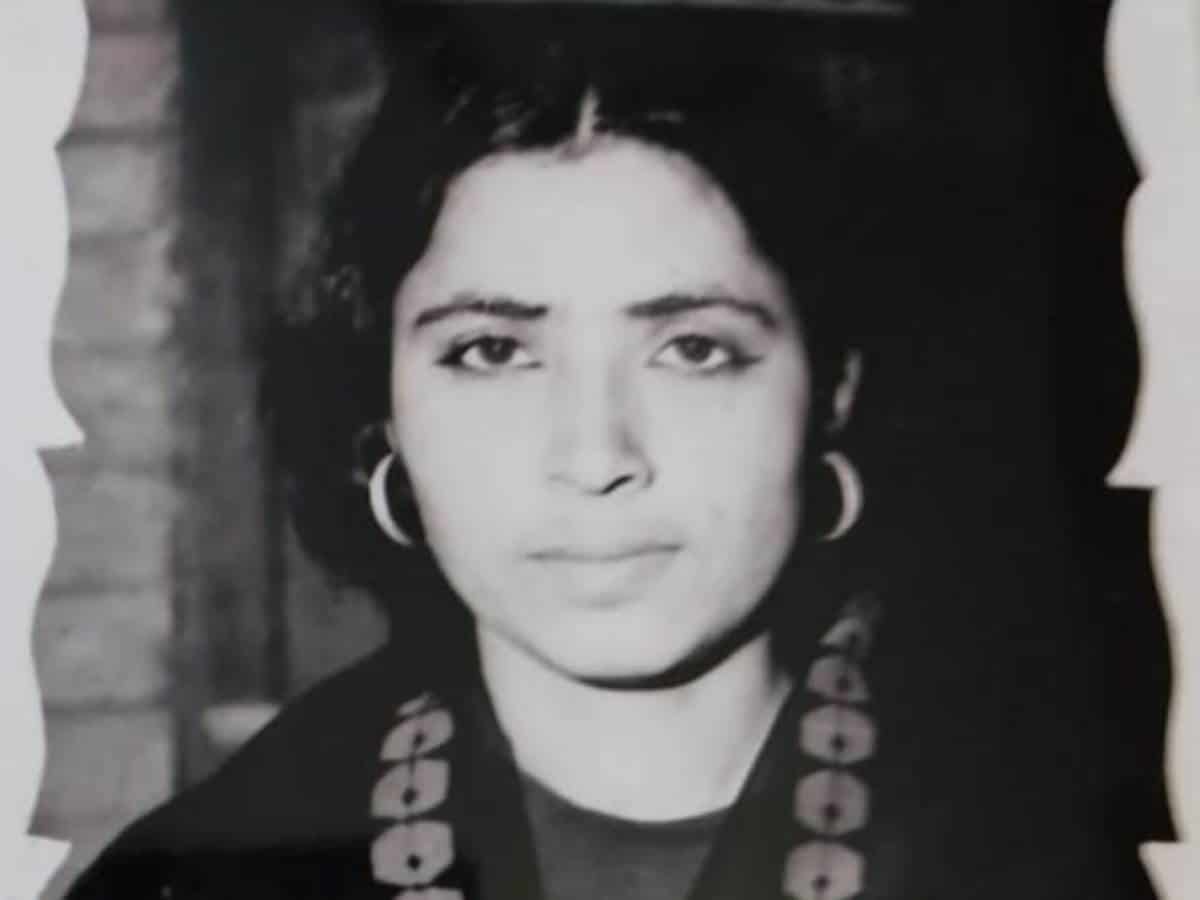
There are some people, especially ladies among Muslim community, who, despite immense caliber, capability and capacity, tend to lie low, just as a matter of personal choice and the world knows not about them. With her passion for writing books and columns, delivering her treatises regarding the uplift of Urdu language and culture, her never say die devotion to her scholarly pursuits, her impeccable house making instincts and her immaculate recipes of “Aaloo Salan”, “Dahi Barey”, “Qeema Matar”, “Pasande”, “Daal Arhar”, “Nargisi Kofte” and “Shaami Kawab”, besides others, just made her the only Muslim woman of her sort — an iron lady — who rose to the level of being an Urdu professor at Jamia Millia Islamia, Delhi. She was a self-made woman. To me she will remain a seminal figure among the women of my community. I am talking here about Prof Sadiqa Zaki, the inimitable Muslim lady or in other words, Indian woman, who left for heavenly abode recently quite unnoticed — may be on account of the pandemic or the lackadaisical approach of society as usual. She breathed her last recently at 81 at her son Namir Abdullah’s house (who she lovingly called Mannu) at her Noida, UP house. In fact, the Urdu newspapers could have made a smattering coverage on the occasion of her passing away but few bothered in these trying and testing days of the pandemic.
Considered as one of the leading female voices in Urdu literature, Sadiqa was treasured at Jamia for he transformative teaching and leadership as the head of the Urdu Creative Writing Programme. Colleagues, former students and the global literary Urdu community shared stories as they learned the news of her death, expressing how Sadiqa made an enduring impression on not only the poetry (Ghalib and Hali her favourites) and prose but also every aspiring writer she encountered.
Carving her niche, documenting history
Sadiqa’s writing and criticism illuminate and complicate a vast catalogue of themes: belonging, the past, womanhood, nationhood, her family, mythology, marriage and identity. Woven throughout, is her commitment to pull back the layers of history, document the lives of the silenced, especially women, and affirm that the personal is political and vice versa. In her Urdu book, “Justju——- she writes, “A woman leaves a courtroom in tears. / A nation is rising to the light. / History notes the second, not the first”.
To the people and families around her, popularly known as “Khalajaan” (aunt), Prof Sadiqa Zaki was so soft-spoken and choosy in her words that she would be one-up compared to the best of Urdu polyglots. In the same way, her English was commanding. The “sheerini” (sweetness) in her tone and tenure, was stunningly notable. I don’t know whether her survivors, have made the videos or cassettes of her voice — something just perfect for the learners of Urdu dramatics and phonetics.
I got to know Prof Sadiqa through my bosom friend and for some time, schoolmate in Delhi, Atyab Siddiqui, who is the son of her elder sister, Rashida Siddiqui. She had lived at Faiyaz Manzil of Okhla in her ancestral mansion. Born in 1939 in Mahow district of Madhya Prdesh to Hakeem Mehmood Ahmed Siddiqui, Sadiqa was the middle sister with Rashida, the older one and Swaleha Rehman, the younger one, who still lives in the main Jama Masjid bazaar of the walled city of Delhi. She had three brothers. The eldest one was Maulana Masood Ahmed Siddiqui, an MLA from Ujjain, maulana Hammad Ahmed Siddiqui, the Mufti-e-Malwa and an eminent Muslim cleric of his times and Dr Anwar, an apothecary in Saharanpur district. Some members of her family were also related to Hazrat Maulana Qasim Nanautvi, the Founder of Darul Uloom, Deoband. Apart from that, Masooda Begum, the legendary freedom fighter martyr from Nanauta, was also related to her. That way, the entire family of hers has been deeply rooted in Islamic legacy.
Pushing dreams into reality
In her childhood, her love used to be the qalam (pen), takhti (wooden slate used in India), dawat (inkpot), books and newspapers. Married to Khwaja Zaki of Panipat in 1962, the grandson of the celebrated Urdu poet and essayist, Khwaja Altaf Hussain Hali, Panipati, Sadiqa was allowed full freedom to go ahead with her studies a rare feat for Muslim ladies in those days of 1950s and 60s. Focused and poised like a visionary, Prof Sadiqa kept rising on the ladder of education and despite some tough times posed before her by her own people, she turned into a seminal figure, simply because her husband supported her educational progress even after wedding — a rarity in those days!
Sometimes, it so happened that her ambitions ran up against her own vast family, mostly rooted into patriarchal society, which held that a woman’s place remained in the home. Undeterred, Sadiqa rose to become an fierce advocate for the liberation of Muslim women, egging them for higher education, defying prevailing gender and class norms by unbinding her feet, insistently calling for social and economic gender justice.
That’s why Sadiqa admitted her daughter Umema to Matre Dei Convent, a missionary school, who then became a senior History teacher at another missionary school, Don Bosco School. Her son Namir Abdullah, is one of the senior directors, at IIHM (International Institute of Hotel Management), was also sent to a missionary school. Even her son-in-law, Atyab Siddiqui, perhaps the most capable drafting genius of legal cases of all kinds but specializing in PILs (Public Interest Litigations) too has been a product of JD Tytler School, Delhi (till class 5) and Oak Grove School, Mussorrie (class 6 to 11).
Writing with panache
Sadiqa’s elder sister’s husband, Aftab Ahmed Siddiqui, was a tall, burly and towering learned intellectual, who was not only the president, NRMU (Northern Railiway Men’s Union), a man of letters but a true patriotic son of the soil. A thorough intellectual, who could have led the Muslim community but shunned politics stating that it was full of dirt and filth and preferred serving the low cadre workers, washer men and coolies of the Indian railways. Aftab had the guts to refuse the Rajya Sabha to Indira Gandhi during the early 1970s. All her life’s efforts and struggle can be found out in her books, some of which are, “Justju Kya Hai?”, “Juma ki Fazilat”, “Khemon ka Shahr”, “Gauhar-e-Raza-e –Doaam” and “Dilli aur Uske Atraf”. Besides, her write-ups regularly appeared in “Al-Jamiat” Urdu daily, “Qaumi Awaz” Urdu daily, “Siasat”, Urdu daily, “Blitz Urdu”, an Urdu weekly, “Aaj Kal” Urdu monthly, “Nasheman”, Urdu weekly, “Naya Qadam”, Urdu weekly, “Azad Hind” Urdu daily, “Rashtriya Sahara” Urdu daily and “Beeswin Sadi” Urdu monthly besides many others.
Few would know that hers was a well-entrenched contribution in the setting up of the MANUU (Maulana Azad National Urdu University), Hyderabad as she helped in its Urdu draft alongside another gem of Hyderabad, that is Jaleel Pasha. She was one of the speakers on the occasion of the ceremony of the unveiling the statute of the university at Public Gardens, Hyderabad in February 1997. She was the only Muslim woman who delivered a speech and was seated on the stage with Chandrababu Naidu, the then Andhra Pradesh Chief Minister, CM Ibrahim, the Central Minister, Lal Jan Basha, the Karnataka MP, Mufakhkham Jah, the Nizamshahi scion and the author.
During the last phase of her life’s five years, Prof Sadiqa Zaki had battled severe mental illness on account of her loss of memory. Except her younger sister, Swaleha, who called her by the nick name, “Hajja” (one who has performed the Haj pilgrimage and Sadiqa was fortunate to have performed it six times), she hardly remembered anyone in the family — not even her son! Nevertheless, till she was in her best senses, she took her son to Noida and made a peaceful mansion there for all her scholarly pursuits. Unfortunately, the torch of Urdu that Sadiqa, through her never say die efforts had burnt, now seems to be on its way out, rather extinguished, as nobody in her family as bright and brilliant as she had been, is there to carry the legacy of Urdu’s brilliance ahead.
Whenever I used to meet her, Khalajaan used to discuss with me any burning problem of the day related to Urdu, nation and the community. I remember that on the occasion of the 80th annual day of Jamia Millia Islamia, in her beautiful calligraphic hand, she had penned down an article to be carried out in a national Urdu daily and I requested Mr Aziz Burney, the editor of “Rashtriya Sahara” Urdu daily, who carried it with panache. There was little love lost between her son Abdullah, nephew, Atyab and myself, whenever I met, my affectionate and adorable Kahlajaan! Long live Khalajaan!
(Firoz Bakht Ahmed is the chancellor of Maulana Azad National Urdu University and the grandnephew of Bharat Ratna Maulana Abul Kalam Azad)
Address: A-202 (First Floor) Adeeba Market, Main Road Zakir Nagar, New Delhi 110 025 Mobile: 9810933050 and LL: 011-26984517, Email: firozbakhtahmed08@gmail.com

